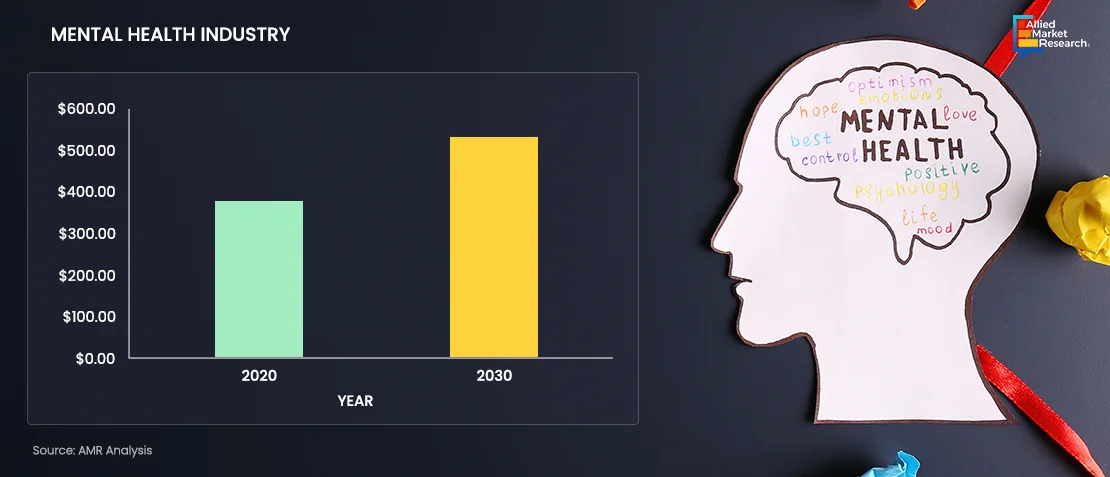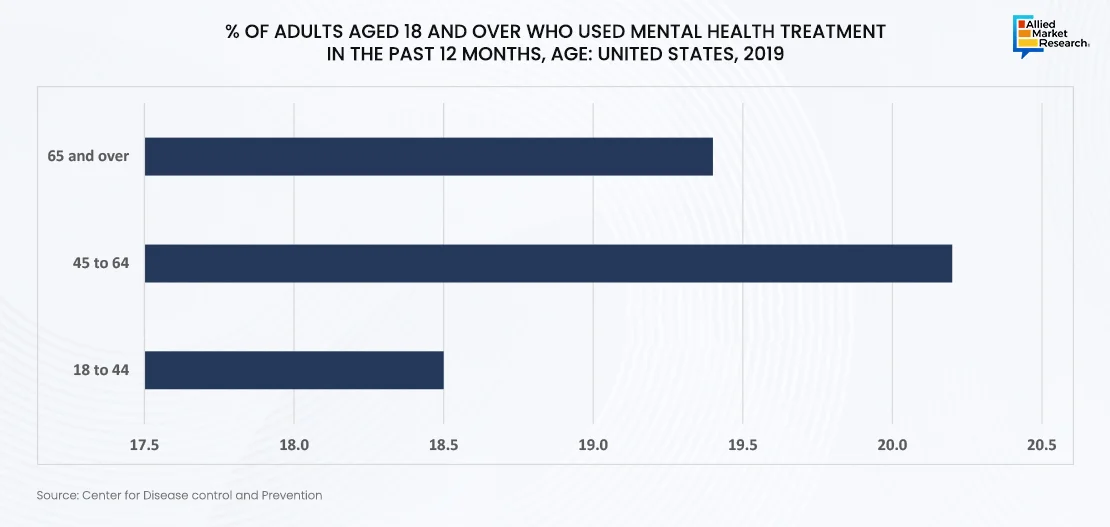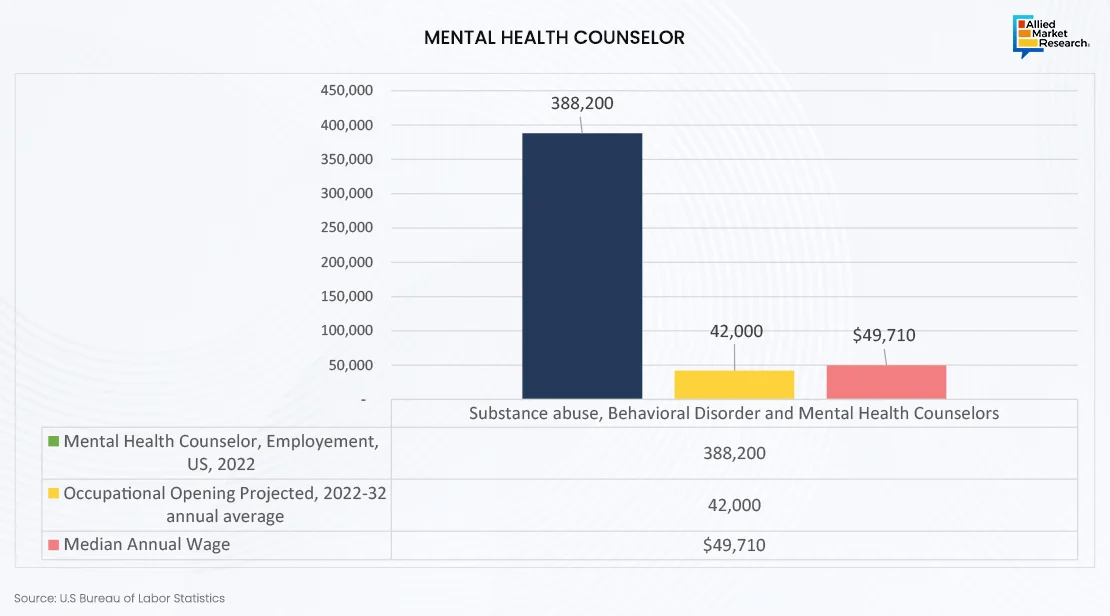Unraveling the Mental Health: Understanding, Support, and Treatment

Mental illness or psychotherapeutic conditions are classified as abnormal thoughts, feelings, and behavior for a determined amount of time, which causes distress or emotional/physical impairment. This includes a wide range of psychological or psychiatric disorders and often requires psychiatric intervention. For instance, the CDC reports that 12.5% of adults 18 and older regularly feel worried, nervous, or anxious, while 5% regularly experience feelings of depression. To heal and recover from the complexities of the mental illness, it is essential to recognize the different symptoms, seek the right support, and get treatment that is effective. Every component needs a customized strategy and detailed understanding, ranging from mood disorders such as bipolar disorder and clinical depression to more complicated diseases like schizophrenia and narcissistic personality disorder.
Mental health, once considered taboo, is now a hot topic in discussions throughout the world. This change in perspective has raised awareness and significantly expanded the sector for mental health services. For instance, the global mental health industry was valued at $383.31 billion in 2020, and is estimated to reach $537.97 billion by 2030, growing at a CAGR of 3.5% from 2021 to 2030. In addition, diverse industries are stepping up to meet the increased demand for innovative solutions and services as societies recognize the significance of mental well-being.
The Global Council for Mental Health acts as a forum for mental health, stimulating and lending support to activities aimed at promoting implementation of the recommendations of the World Health Report 2001 in all regions. Professional NGOs, family members & consumer groups, leaders of religious groups, parliamentarians, labor, and business organizations are pursuing activities for the improvement of mental health through this common platform led by WHO. It is engaged in providing technical assistance to Ministries of Health in developing mental health policy and services. The advent of greater awareness about mental health, fueled by education and advocacy campaigns, has led to a notable decrease in stigma and a growing respect for human rights. Not only has this significant change in public opinion led to a wider acceptance of mental health therapy, but it has also ushered in a time of empathy and understanding, enabling people to seek help without fear of judgment or discrimination.

Types of Mental Health Disorders
Bipolar Disorder
Bipolar disorder, characterized by extreme mood swings ranging from manic highs to depressive lows, affects millions worldwide. For instance, according to the World Health Organization (WHO), in 2019, 40 million people experienced bipolar disorder. While the manic phase can bring about feelings of euphoria and increased energy, the depressive phase can plunge individuals into profound sadness and lethargy. Understanding the cyclic nature of this disorder is essential, as it enables individuals and their support networks to recognize warning signs and seek timely interventions. With the right treatment, including treatments such as mood stabilizers, antipsychotic medications, psychotherapy, and lifestyle management, individuals with bipolar disorder can manage their symptoms and lead fulfilling lives.

Schizophrenia
Schizophrenia often conjures images of disjointed thoughts, hallucinations, and social withdrawal. This chronic and severe mental disorder challenges not only affect those who suffer from it but also impacts their families and communities. For instance, according to the World Health Organization (WHO), Worldwide, about 24 million people, or 1 in 300, suffer with schizophrenia. Schizophrenia patients often live 10–20 years less than the average population.
Treatment typically involves a combination of antipsychotic medications, therapy, and support services aimed at managing symptoms and improving quality of life. Moreover, fostering empathy, reducing stigma, and promoting inclusivity are essential elements in establishing supportive environments for individuals dealing with the intricacies of schizophrenia.
Clinical Depression
Clinical depression, a pervasive mood disorder characterized by persistent sadness and loss of interest, casts a profound shadow over millions worldwide. Beyond occasional feelings of sadness, clinical depression engulfs individuals in a relentless cycle of despair, affecting every facet of their lives. For instance, according to the World Health Organization (WHO), 970 million individuals worldwide, or 1 in every 8 persons, suffered from a mental illness in 2019. Anxiety and depressive disorders were the most prevalent types. In addition, the COVID-19 pandemic considerably increased the number of people with anxiety and depression disorders in 2020. According to preliminary forecasts, anxiety and major depressive disorders would rise by 26% and 28%, respectively, in just a single year.
It's important to seek professional assistance, as there are various treatment options like therapy, medication, and lifestyle changes that can lead to recovery. Moreover, encouraging transparent discussions, advocating for self-care routines, and nurturing supportive environments play crucial roles in breaking down the smirch associated with depression and showing compassion to those who are struggling.
Narcissistic Personality Disorder
Narcissistic personality disorder (NPD), on the other hand, presents a complex interplay of grandiosity, need for admiration, and lack of empathy, posing challenges in interpersonal relationships and self-perception. While people with NPD often display confidence and charisma, their behavior is often driven by underlying insecurities and fragile self-esteem. For instance, 2-16% of people who seek mental health treatment have narcissistic personality disorder (NPD), which is thought to affect 0.5% of the US population overall.
The treatment for this special medical condition usually involves therapy focused on addressing deep-seated emotional issues, promoting understanding and empathy, and developing better ways to cope. Confronting the underlying factors fueling narcissistic traits is the first step. This can help individuals initiate a path of self-discovery and development. Ultimately, it paves the way for genuine and enriching relationships with others.
Mental Health Counselor
A mental health counselor assesses and treats mental and emotional health disorders, relationship issues and life challenges. Through various methods of psychotherapy, counselors work with patients to develop meaningful behavior changes. Each year, millions of Americans receive support for their mental health. Counselors, social workers, and psychologists are among the specialists who provide this care. There is a growing need for qualified mental health counselors to meet the increasing demand for services. The Bureau of Labor Statistics (BLS) projects that employment of counsellors for substance misuse, behavioral disorders, and mental health will increase by 25% between 2019 and 2029—a rate that is significantly faster than the average for all occupations.

Efforts to expand training programs, enhance workforce diversity, and promote professional development are essential to address workforce shortages and ensure quality care delivery. Employment in mental health-related occupations and industries has grown over the past decade, according to the U.S. Bureau of Labor Statistics (BLS).
Mental Health Treatment Centers
Mental health treatment centers are facilities dedicated to providing comprehensive care and support for individuals experiencing mental health challenges or disorders. According to the Substance Abuse and Mental Health Services Administration (SAMHSA), as of 2020, there were around 14,000 facilities specializing in substance use treatment and 4,000 facilities focused on mental health treatment in the US. These treatment centers provide various levels of care, including outpatient, intensive outpatient, partial hospitalization, residential, and inpatient services. For instance, a total of 7.7 million teenagers, or around 29.8% of those between the ages of 12 and 17, required mental health care in 2022. In addition, 56.8% of the 4.8 million teenagers who had a major depressive episode (MDE) over the year—or 2.7 million people—received mental health treatment. Moreover, 2.1 million teenagers with a prior year MDE, or 40% of the population, did not obtain any mental health treatment.

Endnote
The conversation on mental health has changed significantly, moving from a stigmatized subject to one that is vital to society. Destigmatizing mental illness and advancing holistic well-being have advanced due to rises in awareness, activism, and resource accessibility. In addition, it is critical to address mental health issues to promote a society that is resilient and healthier. In this effort, mental health treatment facilities are crucial because they offer people the tools and assistance, they need to deal with the difficulties associated with mental illness. Moreover, mental health counsellors have a major impact on promoting mental wellbeing and lowering the stigma associated with mental illness. Their contributions range from offering therapy and counselling to leading support groups and pushing for structural change. As job opportunities in this field expand, so does the potential for meaningful impact and career fulfillment. However, challenges such as limited resources, systemic barriers, and the need for ongoing education and training in developing countries persist. It is essential that we continue to invest in the mental health workforce, create pathways for professional development, and foster environments that prioritize mental health support.
Allied Market Research recognizes the transformative potential of mental health within the healthcare landscape. By leveraging AMR's sophisticated analytical tools and methodologies, vendors can gain a deeper understanding of market trends, consumer preferences, and competitor strategies. This data-driven approach enables vendors in the mental health industry to tailor their products and services, helping them meet the evolving needs of individuals struggling with mental health issues. Furthermore, AMR helps vendors identify underserved demographics or unmet needs within the mental health landscape, allowing for targeted interventions and innovation. By harnessing the power of AMR, vendors can optimize their practices, improve outcomes, and ultimately make a positive impact on the lives of those affected by mental health conditions. For more details, contact our esteemed professionals today!



